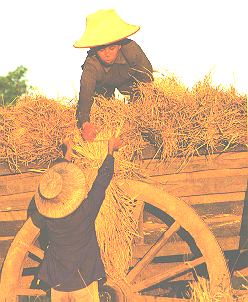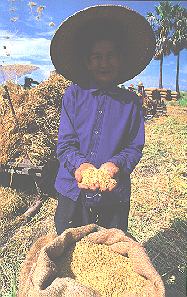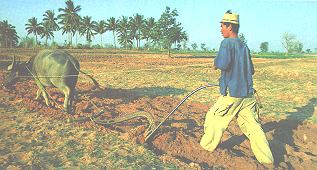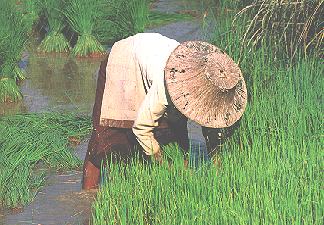
Harvest time is hard work for farmers but communal effort and increasing mechanisation produce efficiencies

|
The advent of the rains in June marks the beginning of a new agricultural year. The earth soften with the early downpours and the soil, previously sun-baked, rock-like,
and crackrd, now yields to the plough, turning thick and moist.
Once the fields have been ploughed, the arduous task of planting begins. Working in lines, their backs bent and heads covered with scarves and straw hats, men, women
and children laboriously root the young plants in the flooded earth. Gradually the countryside assumes a brilliant hue as vivid green rice shoots carpet the land.
While the new crop slowly ripens, the annual Buddhist Retreat is celebrated with religious observances, and many young men will temporarily don the monk's saffron robe to earn merit for their parents.
By October the rains are drawing to a close, the air cools and the paddy fields turn a golden yellow as the rice ripens. The year end is a busy time for rural folk, working long hours to gather in the harvest. Tiring though the task is, the mood is merry and laughter and lighthearted banter echo across the fields.
|





